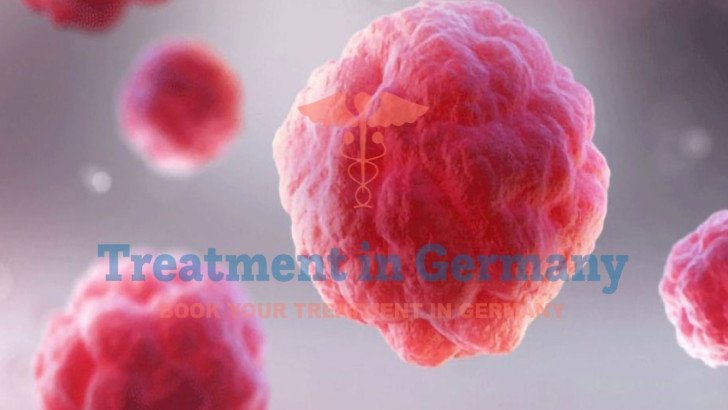
Dendritic cell vaccination also prevents early cancer recurrence and improves 10-year survival rates by up to 95%.
Dendritic cell therapy, an advanced cell-based immunotherapy, mobilizes the immune system to target cancer cells with precision, offering hope for patients with triple-negative breast cancer (TNBC), an aggressive subtype lacking estrogen, progesterone, and HER2 receptors. In cancer treatment, this personalized treatment is delivered by expert doctors, including German oncologists, in state-of-the-art hospitals.
TNBC accounts for 15-20% of breast cancer cases in Germany, with approximately 9,000 annual diagnoses. Unlike other breast cancers, TNBC’s lack of actionable receptors limits targeted therapy options, contributing to a 40-50% recurrence rate within five years and a 20-30% five-year survival rate for metastatic disease. Risk factors include obesity, diabetes, high cholesterol, and autoimmune diseases, which complicate treatment.
Dendritic cell therapy, by activating T-cell responses against tumor antigens, offers a novel approach for this solid tumor, contrasting with CAR-T cell therapy’s dominance in blood cancers. Hospitals leverage innovative cancer treatments to address TNBC’s challenges, achieving response rates of 20-40% in advanced cases, per latest research.
Dendritic cell therapy harnesses the immune system through a structured process tailored to TNBC:
This mechanism, optimized in hospitals, distinguishes dendritic cell therapy as a personalized treatment for TNBC, unlike chemotherapy’s non-specific cytotoxicity.
Clinical Applications for TNBC
Dendritic cell therapy is particularly suited for TNBC due to its immunogenicity and lack of standard targeted therapies:
German oncologists customize protocols, enhancing cancer treatment for TNBC patients.
Safety Profile of Dendritic Cell Therapy
The therapy’s safety profile is a key advantage for TNBC patients, who often face aggressive treatments:
Doctors monitor patients closely, ensuring safety in hospitals, per latest research.
Integration with Other TNBC Treatments
Combining dendritic cell therapy with other modalities enhances efficacy and addresses TNBC’s heterogeneity:
Hospitals integrate these approaches, optimizing cancer therapy for TNBC.
Comparison to Other Immunotherapies
Dendritic cell therapy differs from CAR-T cell therapy and other immunotherapies in its TNBC application:
These distinctions guide German oncologists in selecting innovative cancer treatments.
Challenges and Limitations
Despite its potential, dendritic cell therapy for TNBC faces hurdles:
Germany’s 100+ annual trials address these challenges, driving cancer treatment options, per latest research.
Future Directions for TNBC Treatment
Research is expanding dendritic cell therapy’s role in TNBC:
These advancements position hospitals as leaders in innovative cancer treatments.
Conclusion
Dendritic cell therapy offers a transformative approach for triple-negative breast cancer, activating the immune system to combat this aggressive solid tumor with precision and safety. Delivered by German oncologists in premier hospitals, it integrates targeted therapy and complementary therapies to enhance quality of life. As latest research drives innovation, this cell-based immunotherapy underscores Germany’s leadership in personalized treatment for TNBC, offering hope for improved outcomes.
🌍Why Patients Worldwide Prefer Our Medical Services in Germany – Key Benefits Explained:
FAQS
What is dendritic cell therapy for TNBC?
It activates immune responses against triple-negative breast cancer, a key innovative cancer treatment.
Who is eligible for dendritic cell therapy?
TNBC patients with identifiable antigens qualify, assessed by German for personalized treatment.
Is dendritic cell therapy safe for TNBC?
Mild side effects like fever are managed by doctors, ensuring safety in cancer therapy.
How effective is it for TNBC?
Achieves 20-40% response rates, enhancing quality of life for solid tumors.
Can it prevent TNBC recurrence?
Reduces recurrence in 25-35% of patients, part of cancer treatment options.
How does it compare to CAR-T cell therapy?
Better suited for solid tumors like TNBC than blood cancers, per cell-based immunotherapy research.
Can it be combined with other treatments?
Targeted therapy and chemotherapy boost efficacy, optimized in hospitals in Germany.
How long is the treatment process?
Spans 2-6 cycles over weeks, tailored by doctors for cancer therapy.
Are clinical trials available for TNBC?
Yes, trials advance innovative cancer treatments for triple-negative breast cancer.
Why choose Germany for this therapy?
Germany excels in personalized treatment, led by expert German oncologists and hospitals.
For further details, visit our contact us page
Kindly complete the form below, and our dedicated team will reach out to you promptly. We look forward to connecting with you soon!
Trierer Straße, 56072 Koblenz, Germany

.webp)
 (1).webp)

.webp)
 (1).webp)


.webp)
 (1).webp)

.webp)
 (1).webp)
